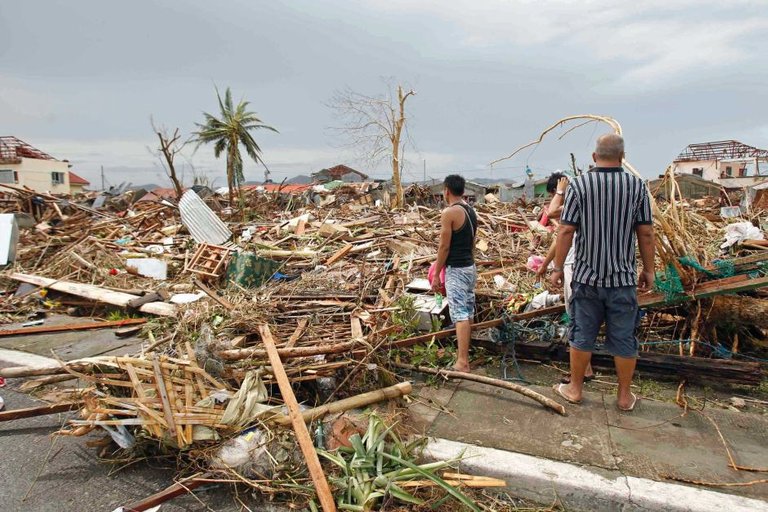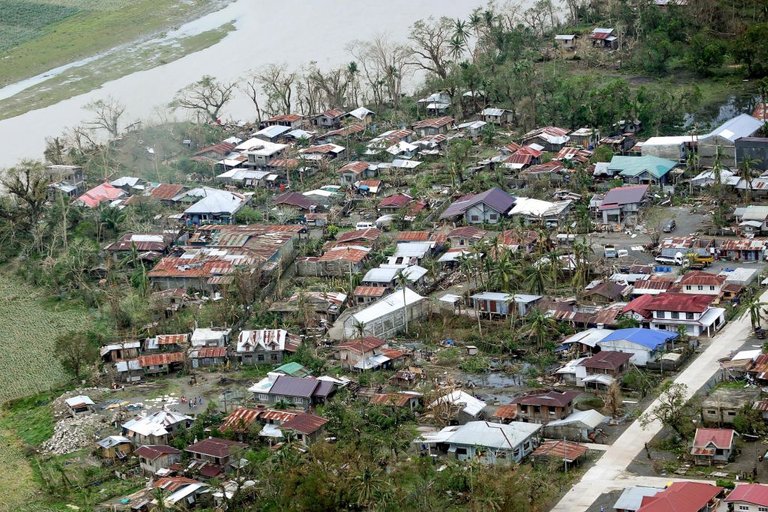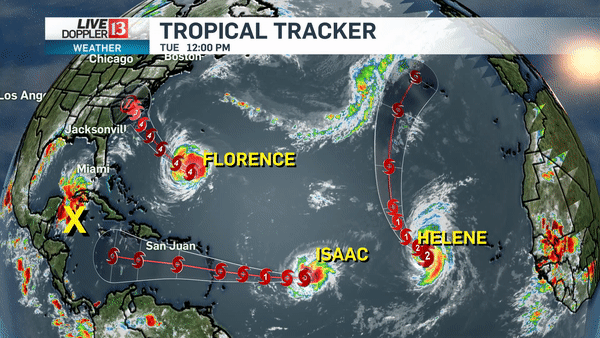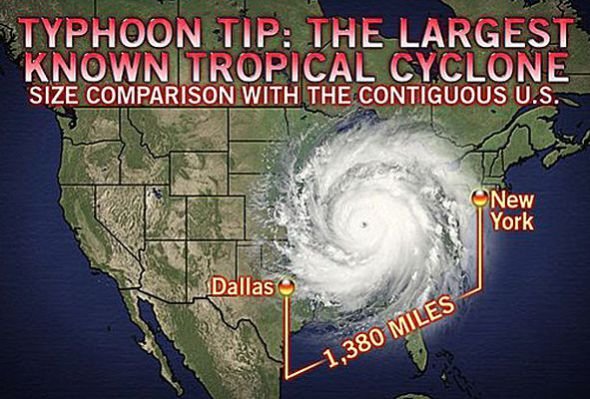EXPERTS CONCERNED due to global warming:
'Cyclones will be far more powerful, more violent and destructive, and we expect more rain'
Scientists have long warned that global warming makes storms even more devastating, and some claim the evidence is already visible to them.
Hurricane Florence hit the coast of the United States, typhoon Manghkut hit the Philippines and the local population fleeing from possible disaster. Here are some facts about the monstrous storms of this type and what can be expected of them in the future, at the time of climate change.
China and Philippines After typhoon Mangkhut


Hurricanes, cyclones and typhoons are distinct geographic names for the same type of huge tropical storms that form in the oceans near two Americas and Asia. They bring abundant rain, orchestral winds, storms, huge waves and can be deadly and devastating when they reach the mainland. In their worst releases, these low pressure fields are more energetically powerful than the atomic bomb set up by Hiroshima.
On the Atlantic Ocean and on the North of Pacific Ocean, they are known as Hurricanes, in the East Asia they call it Typhoons, and in the Pacific Ocean and in the Indian Ocean they are cyclones.

Humble beginnings
Cyclones begin as simple thunder storms. But in some periods of the year when the water temperature high enough to evaporate water, storm fronts is beginning to suck in large amounts.
In the northern hemisphere are formed in the vortex that is the other way around clockwise moving across the ocean. Cycles in the south are turning in the direction of the clock. The water that deposited then turns into strong rains that bring catastrophic flooding, property damage and loss of life.
Storm can grow up to 1,000 kilometers wide, and in its center is the "eye", the area calm weather conditions that is typically tens of kilometers wide.
Hurricanes are always very weak when traveling overland or colder ocean areas.
Size is not (always) important
Scientists classify cyclone by force, in categories 1 to 5.
Fifth category storms have winds blowing 252 kilometers per hour or more.
A recent example of the fifth category hurricane was Irma, which in September last year hit the Caribbean and the south of the United States. In that category was Katrina, a hurricane that killed more than 1800 people in 2005 across the US coast of the Mexican Gulf.
Hurricane Florence on Thursday weakened to Category 2, but that does not mean it is not still very dangerous. It is expected that in some areas in North and South Carolina will bring five times more rain than the monthly average.
Flood after hurricane

Violent summer
Last year, the Western Atlantic hit a series of catastrophic storms like Irma, Mary, and Harvey, who in the Houston area caused $ 125 billion damage.
The US National Weather Agency NOAA and British Met Office for this year forecast between five and nine storms of the third category or stronger.
The worst is just coming
Scientists have long warned that global warming makes storms even more devastating, and some claim the evidence is already visible to them.
The warm oceans give new fuel to feed the cyclone, and the rise of sea levels increases the stormy impact that the defense of the coasts is helpless. Cyclones will be "far more powerful, more violent and destructive, and we expect more rain," said scientists.

https://www.accuweather.com/en/weather-news/typhoon-tip-earths-strongest-storm/87362
Congratulations @ivan78! You have completed the following achievement on the Steem blockchain and have been rewarded with new badge(s) :
Click on the badge to view your Board of Honor.
If you no longer want to receive notifications, reply to this comment with the word
STOPTo support your work, I also upvoted your post!